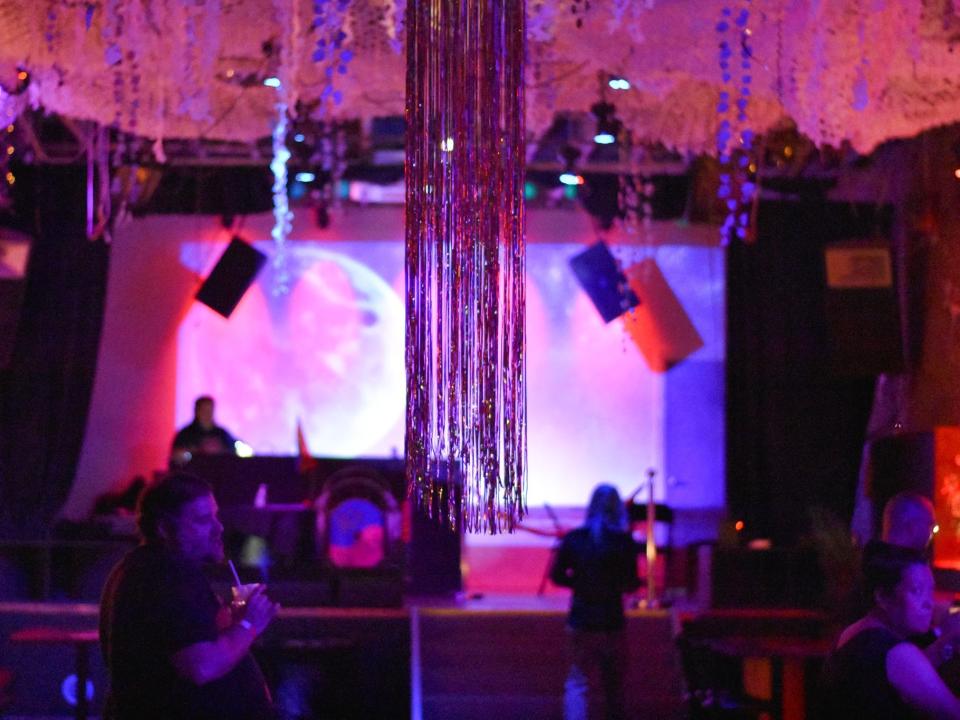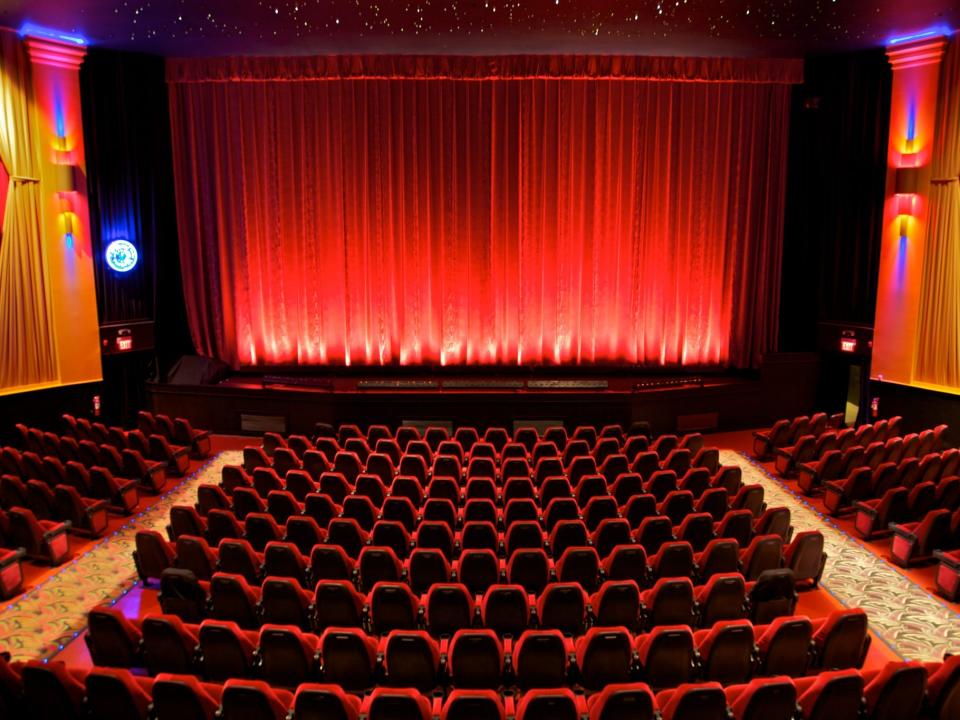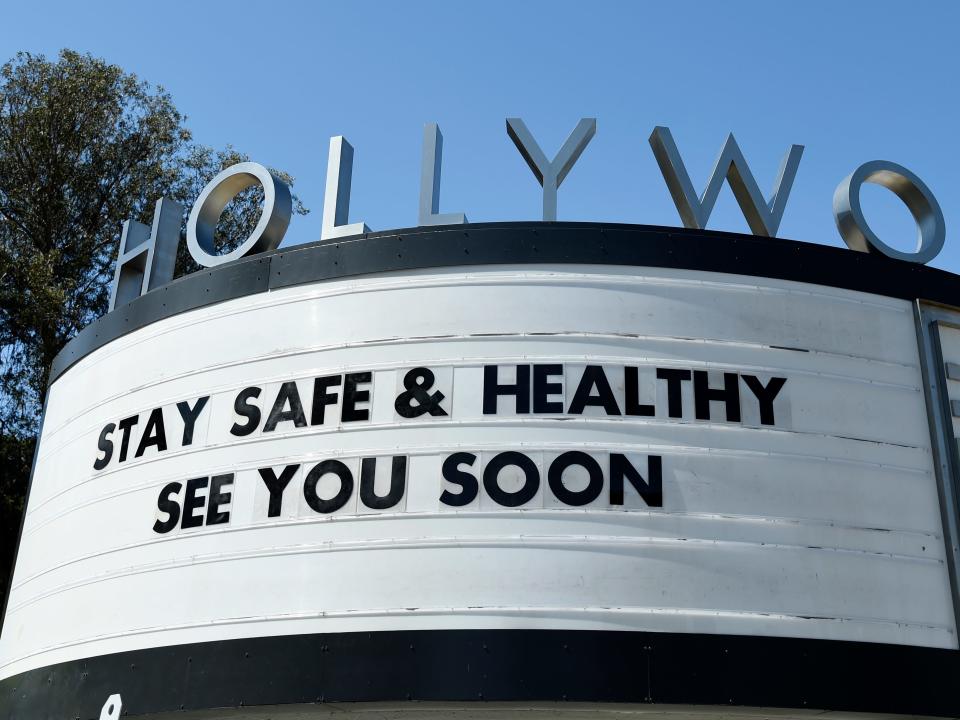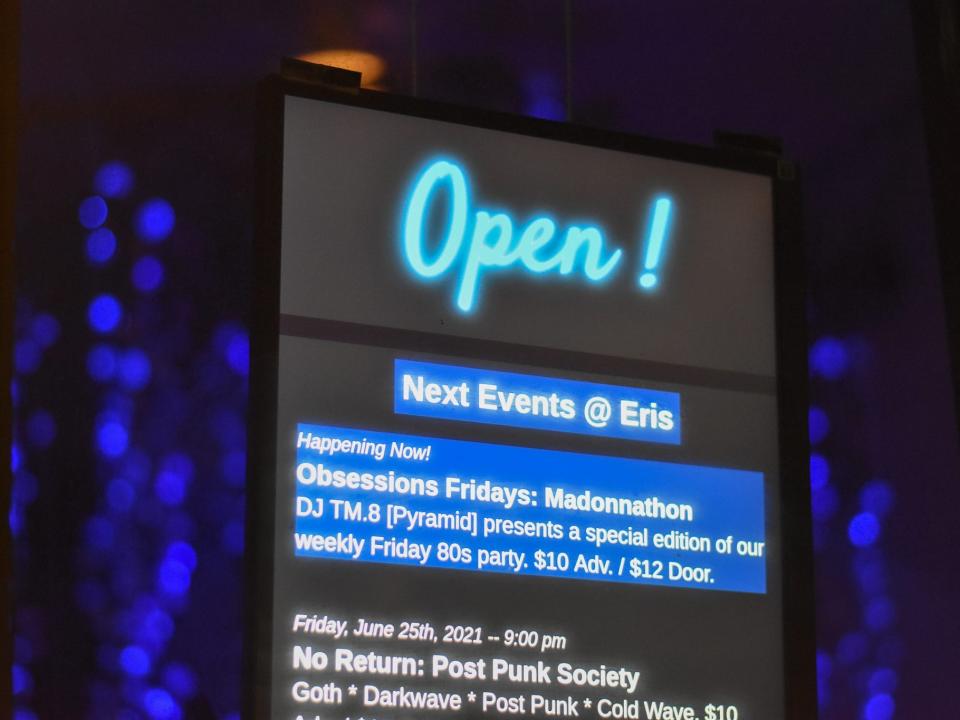Congress passed a $16 billion program to save entertainment venues rocked by the pandemic. It became a mismanaged fiasco, with thousands of businesses still waiting for relief.
Congress passed a $16 billion bipartisan relief package for venues months ago.
The rollout has been a slow, bug-ridden disaster, and thousands of venues don't have their money.
"Each day these venues don't get their money they're going out of business," Rep. Roger Williams said.
Walter Kinzie, the owner of Austin-based concert promoter Encore Live, was loading in for a 28-band festival at SXSW in Austin in early March 2020 when the pandemic hit. Kinzie has a Texan unflappability and an aura of capability, the kind of guy who can fly halfway across the world with two employees and orchestrate a multi-night event juggling dozens of contractors.
His company, based out of the rustic Stockyards neighborhood of Ft. Worth, was among the first to shut down. In the months that followed, the live music, theater, and venue industry would have to buckle down, and starve out a pandemic that made the very fundamentals of their business unworkable.
"I lost 92.5% of my business in four days," Kinzie told Insider. "A business I built over a decade was gone in four days. I lost my house, I lost my cars, I lost my office building, I lost all of my investments and my savings account, just to keep my employees working. It cost me everything."
"But it will be worth it."
In December, Congress passed and President Donald Trump signed a bill allocating $16 billion in emergency relief grants to the venues and stages decimated by the pandemic. The bipartisan bill ensured that the money would be allocated by the Small Business Administration to venues that had lost a large amount of their business owing to the pandemic.
Seven months later, after what operators described as a fiasco of an implementation, only a fifth of that money has actually been awarded, and more than 10,000 applicants are still waiting for their money.

While other businesses like restaurants and office workers were able to adjust, by serving customers outside or having staff work from home, the live events industry was gutted nearly completely. The independent and fragmented nature of the live events business - where a single event can require the work of dozens of contractor companies, from ticketing to lighting to performers to catering to security and more - may make the industry a significant employer, but also made less able to seek out the aid it needed, compared to industries where just a few large corporations control a substantial amount of the business.
"I talk to friends who run arts organizations in other countries, and they're just horrified," said Angela Buccinni Butch, who owns The Muse, a venue where performers in acrobatic circus events train and perform.
"Every penny makes a difference in how these venues will emerge from this, because the fact is we cannot rely on our government."
Venues are going for broke
Ben Lillie, who owns Caveat, a New York venue for comedy and music that put on 60 shows a month pre-pandemic, was looking at the best month of business in March 2020. "I was talking to a bankruptcy lawyer six months ago just to see about our options if we did have to shut it down, but luckily we didn't."
At The Muse, Broadway shows would rehearse there before they hit the road, and if you've ever watched a television commercial with an acrobatic element, there's a pretty solid chance The Muse had a hand in it. Prior to the pandemic, the space was bustling.
"You'd always find people flying through the air," Butch said . "Now we're a warehouse that mostly sits empty all the time, because we're waiting on funding to come through."
Jonathan Corbett, who owns performing arts venue Eris in Brooklyn, went so far as to build a kitchen in his nightclub, just to be able to reopen when outdoor dining came back.
"I never expected to find myself as a restaurateur, and there I was," Corbett said.

The federal government rolled out three programs to help out venues. The first was PPP, the Paycheck Protection Program, which offered forgivable loans that, for venues bound to be closed for over a year, functioned mostly as a helpful stopgap. Next were Economic Impact Disaster Loans, or EIDL. Those were larger, but they weren't forgivable, and for a typical venue were signed over to landlords or creditors pretty quickly.
That's where SVOG, or the Shuttered Venue Operator Grant program, was supposed to come in.
"This was a business that was devastated by COVID," said Rep. Roger Williams, the House GOP architect of the SVOG bill. "It was the first to shut down and the last to open. Thousands and thousands of jobs were affected."
The lack of capital for the venues is stymieing the recovery of the US's entire entertainment sector. Prior to the pandemic, The Muse had between 50 and 100 people on payroll each month.
"We've lost half our staff because we can't put offers on the table," Butch said. "It's prevented us from doing realistic negotiations with the landlords to resolve back rent. It's prevented a lot of things. We are aiming to re-open in September and we are just praying this funding comes through."
"The truth is, we have a bankruptcy meeting next week because if it doesn't come through, that is what we're looking at."

The difficulties
Following the passage of the bill in December, operators expected a speedy response on par with the PPP program.
"I was hopeful it would follow the PPP and the EIDL timeline, which was probably two months," Corbett said. "I was expecting February, March. They didn't even have the application out until the end of April."
The venue operators, who had been desperate for the money in December, would have to wait months in order to even apply. By February, 1,500 small operators had flocked to a Facebook group Kinzie organized, sensing an issue.
On April 7, an Inspector General report sounded the alarm on the SVOG program: "Currently, the program office has one designated official and its staff are on temporary detail. At this time, SBA has not formalized a plan for staffing this office relative to the volume of applications expected."
"To put it simply, it has just been a complete mishandling of the program by SBA," said a congressional aide familiar with the program. "They were able to roll out PPP on a timeline, but were vastly underprepared for this even though they had the resources."
SVOG was turning into a disaster. "The restaurant revitalization fund was passed later and paid out earlier," Corbett said.
A red tape nightmare
The FAQ document the SBA produced in early January identifying how to apply was eight pages in length. After 10 revisions, by April the document was a sprawling 41 pages.
"They kept on changing these manuals and what they were going to ask for and how to present things," Butch said. "They made it clear if you made any mistakes on your application it would be dismissed right away."
When the portal to apply opened on April 8, the system was taken down within an hour due to fundamental problems in the construction of the application form. According to an aide familiar with the program, SBA didn't conduct appropriate stress tests for the portal.
Operators cited a document upload field as a key bug. When applicants attempted to upload a floor plan or other mandatory document, the system would crash and send the applicant to a Salesforce landing page. Later reports would identify contractor Salesforce as a source of the trouble, and the bug was related to an unregistered license. That, among other issues, delayed the portal launch two weeks, to April 24.
Neither the Small Business Administration nor the Office of Disaster assistance replied to a request for comment. A Salesforce spokesperson referred questions to the SBA.
A perfect storm

The first thing that operators heard was silence, often for a month. When the SBA did reach out, it was often with problems with the applications.
"It required some IRS forms that had to be filled out in a pretty specific manner, in a manner that was inconsistent with the SBA's instructions," Corbett said. "There were people who were told they were dead. Not just a couple - that was a problem that was pretty broad. There were other people who were told they were on some kind of government do-not-pay list."
The complex nature of the live events business, where 20 different independent contractors can have skin in the game on a single live event, made it all the more difficult for the federal government to actually understand who should qualify.
"The industry had limited resources to begin with, inadequate folks to advise the federal government, and a change in administration, I think it created this perfect storm," Kinzie said.
The boiling point
When the first decisions went out on June 1, just 31 grants out of 13,619 were awarded. A week later, on June 9, that rose to a mere 90 grants out of the then-14,020 submitted, or 0.64% of grants.
"I don't think there was any urgency created with the Biden administration to get this money out, and that was a big problem," said Rep. Williams. "Like I was telling everybody at the SBA - this isn't political, it doesn't matter if I'm a Democrat or a Republican, this is a job creator, it's a law, we need to get it going."
The venue operators then began pushing the SBA publicly. Following scrutiny from the House and Senate architects of SVOG, which included Senate Majority Leader Chuck Schumer, the administrator overseeing the program was swapped out, and Katie Frost, who had worked to implement the Restaurant Revitalization Fund, was placed in charge. Venue operators said the pace of decisions increased substantially thereafter.
"This legislation's got Roger Williams and Chuck Schumer on it for crying out loud, we ought to be doing better than this," Williams said. "We're going to keep fighting to get this money, because each day these venues don't get their money they're going out of business. Jobs are being lost. I want to get these people paid rather than infighting with the agency."

The current status
Now, the money is starting to flow.
As of Tuesday, $3.2 billion of the $11.7 billion requested has been awarded. While just 28% of applicants have received their money, another 43% have had their application reach a decision.
But thousands of applicants are still in a state of limbo, unable to plan.
"Does it hamper the recovery? Absolutely," Corbett said. "I would love to put money into a lot of different things."
When Insider spoke to Kinzie, he was in Barcelona at the Mobile World Congress, a conference for the digital communications industry that usually attracts more than 100,000 attendees. A few hours earlier, the band Bon Jovi exited the stage following a performance Kinzie had organized. It's his first live in-person event since March of 2020.
"Frick, it feels good," Kinzie said. "I'm kind of emotional thinking about it. It feels good to be working again."
Butch, who had been meeting with a bankruptcy attorney as recently as two weeks ago, got notified that The Muse had their grant application approved last Friday.
"We do not have a sense of when the funding will come through but have been awarded," she said in an email. "We know of many others who have had trouble receiving the money so we are waiting to make sure it hits the account before we cheer too much."
Read the original article on Business Insider

